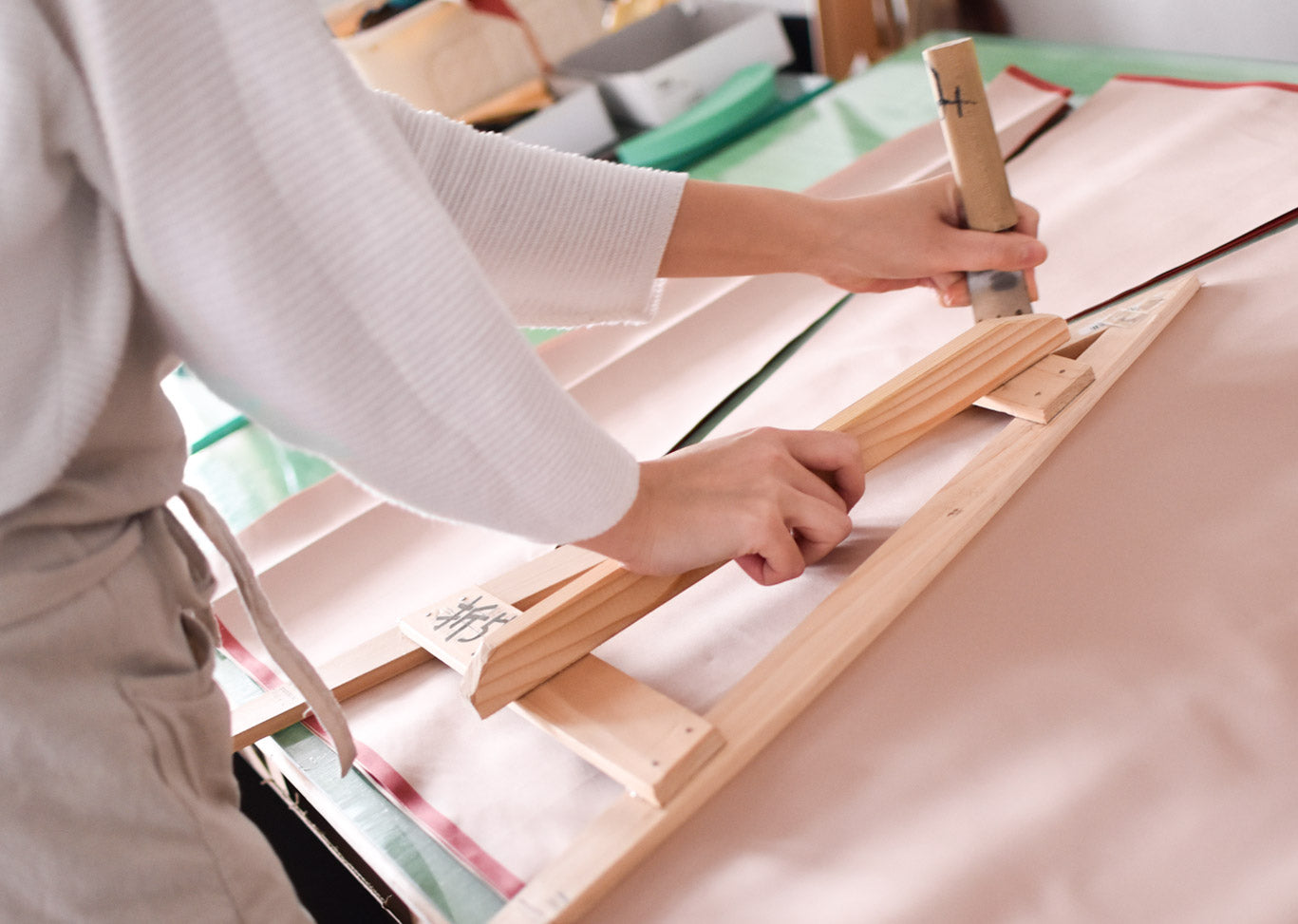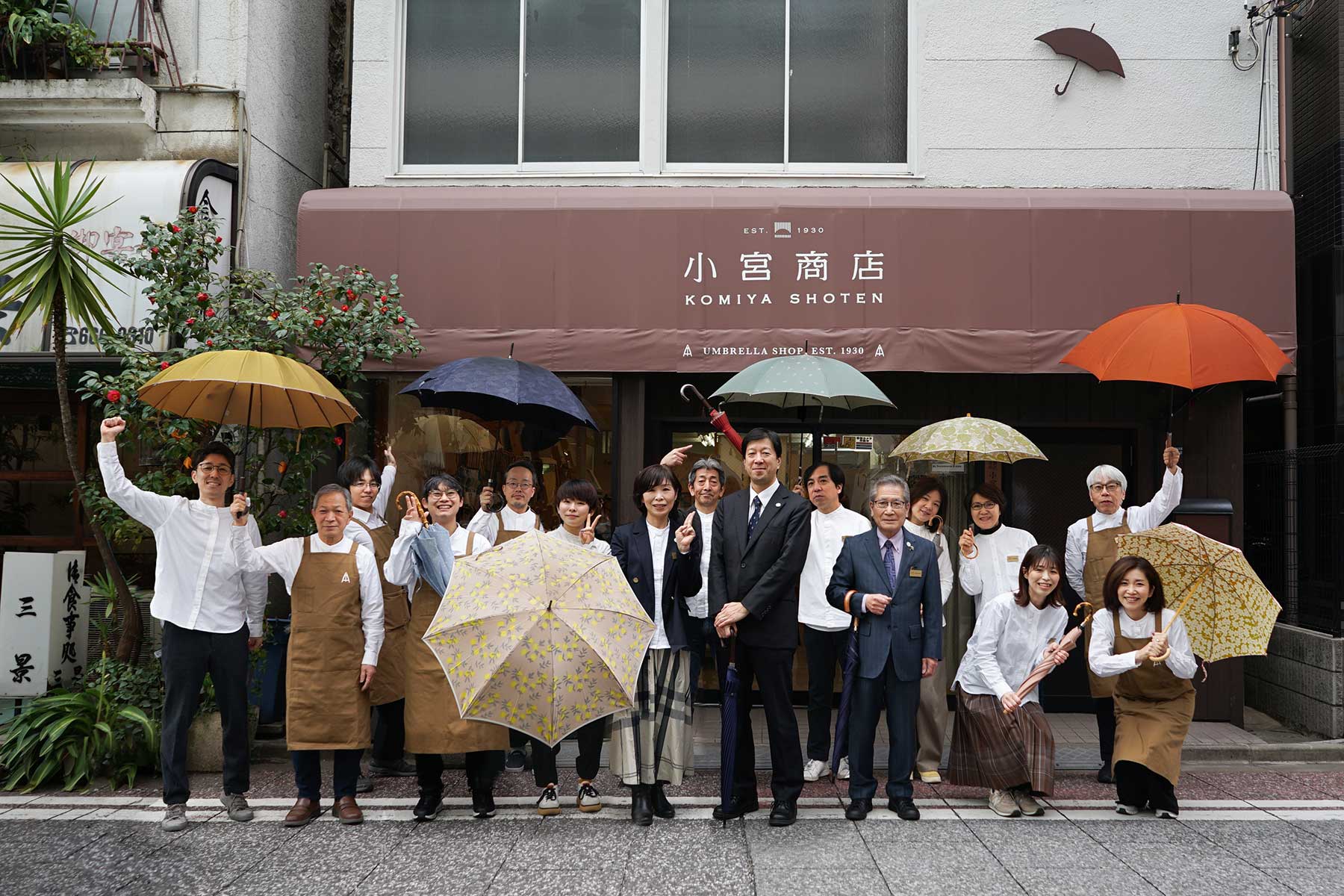Visit a craftsman
"Protecting the highest quality Western umbrellas"
Shoichi Kogane, Tomiko Kogane, and Kensuke Ishii
In the 1960s, Japan became the world's largest manufacturer and exporter of Western-style umbrellas. Traditional Japanese umbrella craftsmen work as husband and wife pairs.
The wife sews together the small parts, while the husband attaches the cut fabric to the frame and assembles it. "My wife and I have been doing this work together for almost half a century. That's why I tell my husband, 'When you want to quit, I'll quit too,'" says Shoichi Ogura, who has been in the business for 70 years, laughing.
His fingers move smoothly as he talks. At first glance it may seem like nothing, but the moment he passes the needle through the fabric, you can see the incredible force he puts into his fingers. Because everything is done by hand, he can only make four or five 16-rib umbrellas in a day.
"Any craftsman can tell if he is doing a good job. I don't want to do dead work that ignores that and only pursues numbers."
Once Kogugi delivers the umbrella to Komiya Shoten, Ishii Kensuke, a craftsman at Komiya Shoten who has been working with Kogugi for over 50 years, attaches a handle and inspects the umbrella.
"Oguno also checks it, but when you make it into an umbrella shape, the fabric and ribs also look different," says Ishii, checking each detail one by one as he attaches the handle.
In addition to checking for scratches, check that the handle is straight, that the upper and lower levers (opening and closing levers) work properly, and that the tassels are in order...
There are a total of 20 check items, including the sound of opening and closing the umbrella and fastening the hook. Ishii says, "I want our craftsmen to be proud of making umbrellas that live up to the name of our 100-year-old store.
If they didn't put that kind of feeling into the umbrellas, what would be the point of selling umbrellas that require so much effort in this day and age when you can buy plastic umbrellas anywhere?
So I can't retire because I'm old. Not until the next generation is raised."
This article is an excerpt from the December issue of "Monthly Edoraku."





